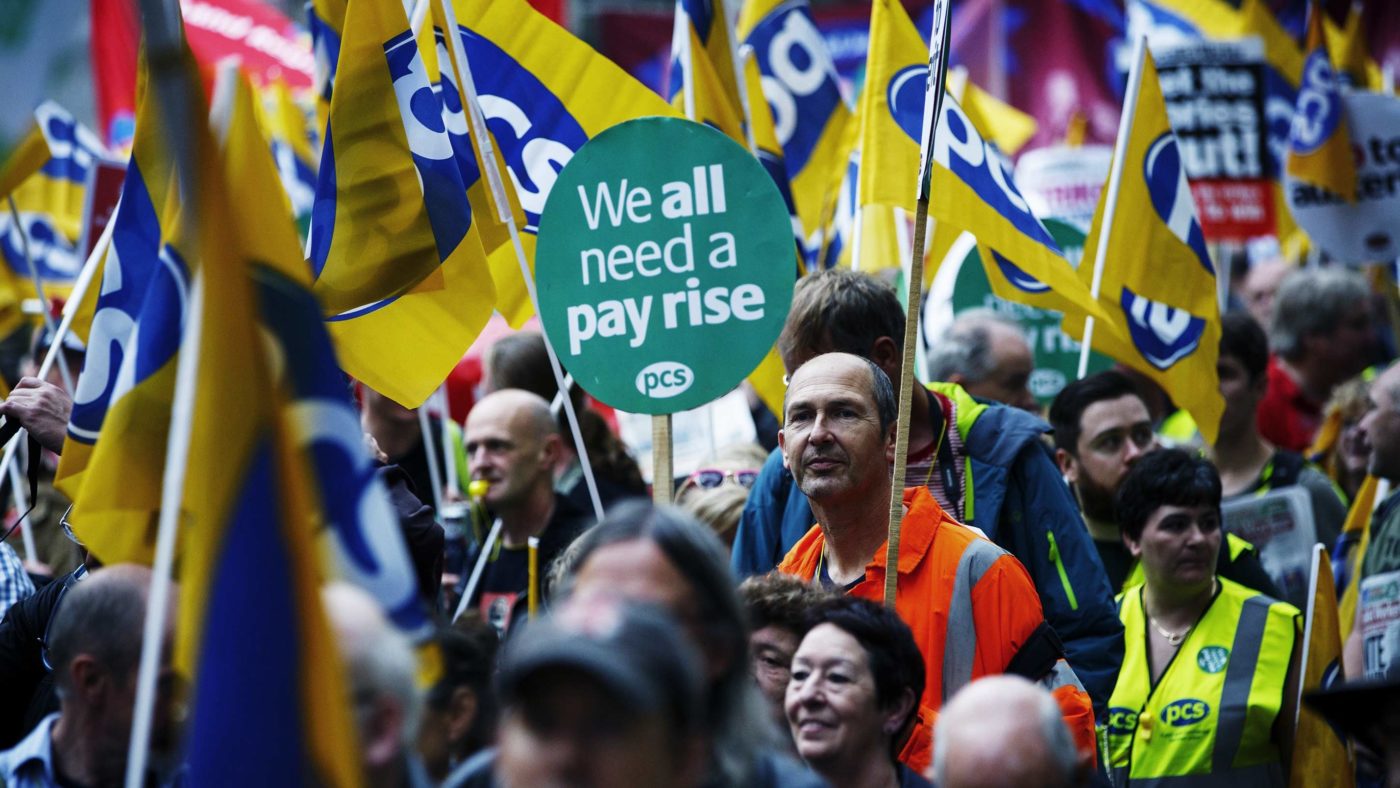Should the Government remove the cap on public-sector wage increases? As Theresa May reportedly draws up plans to scrap it, a colleague of mine, James Price, debated the subject on Sky News. His opponent made the case that ditching the cap would be good for the economy as it would mean that public workers would have more money, which they would then spend, thus growing the economy.
It’s a familiar argument and one that makes perfect sense – doesn’t it? After all, it was one of the influential ideas articulated by the great John Maynard Keynes in 1936. He argued that the most important thing to do is to boost aggregate demand.
According to Keynes, if we want to grow the economy, then we need to increase demand so that people will consume more. Eighty one years later, and this theory is still popular among economists such as Nobel laureates Joseph Stiglitz and Paul Krugman – as well as those who believe it’s a brilliantly simple justification for scrapping the pay cap.
The trouble is, they’re wrong – for two reasons.
First is the theory that increasing demand produces economic growth. As the classical economist Jean Baptiste Say demonstrated, demand-side economics is flawed, In Say’s law, he shows that demand derives from the supply of goods to markets.
So in Say’s view, if we want to grow the economy, then we need to focus on the supply side. We can do this, as Friedrich von Hayek argued, through saving. Our savings are borrowed by entrepreneurs, who use the money to establish or expand businesses. This increases the supply of goods and services at lower costs for consumers, which in turn encourages consumers to buy these products.
The second flaw in the pay-cap-scrappers argument is the “broken window fallacy”. The French economist Frederic Bastiat told the tale of a boy who broke his father’s shop window. The villagers at first thought that this was terrible, but then began to wonder if the boy had actually done the local economy a huge favour. They reasoned that the boy’s father would pay for the window to be repaired. This would give the glazier more money, which he would then undoubtedly spend in another shop. This would increase the other shop’s profits, which would, in turn, also be spent elsewhere.
As a result of the boy’s actions, the economy grows. It is the same thing with public sector workers. Their wages increase, and so they have more money. As a result, they will use this extra money to purchase more goods and services, which will in turn grow the economy. Therefore, we should surely scrap the public sector pay cap, shouldn’t we?
However, Bastiat pointed out that the boy’s actions decreased his father’s disposable income. We cannot possibly know what he was going to do with the money that he had to spend fixing his window. Perhaps he was going to invest it in his business. He could have expanded, which would have increased profits and provided the bank with more money to lend to other business owners who would have also been able to expand and produce more goods and services at lower costs to consumers.
Or maybe he was going to buy a new suit from the local tailor. Or save the money for his son’s education or donate it to charity. We cannot say for certain. But what we do know is that even though it has given the glazier some money, it has deprived other businesses of the same and reduced the amount being spent on other goods and services.
It is the same with the public sector pay cap. If the Government decides to pay public sector workers more money, then this has to be paid for by increasing taxes. These increased taxes reduce the disposable income of taxpayers. The money that they might have spent starting or expanding their own businesses, which would have increased the supply of affordable goods in the economy, will instead be handed over to HMRC.
In fact, invoking Keynesian demand-side economics in order to justify scrapping the public-sector pay cap is pretty short-sighted. It might seem superficially attractive but on closer inspection, is obviously deeply flawed. After all, if higher pay for public-sector workers is such a good thing for the economy, why aren’t we already paying them millions?


